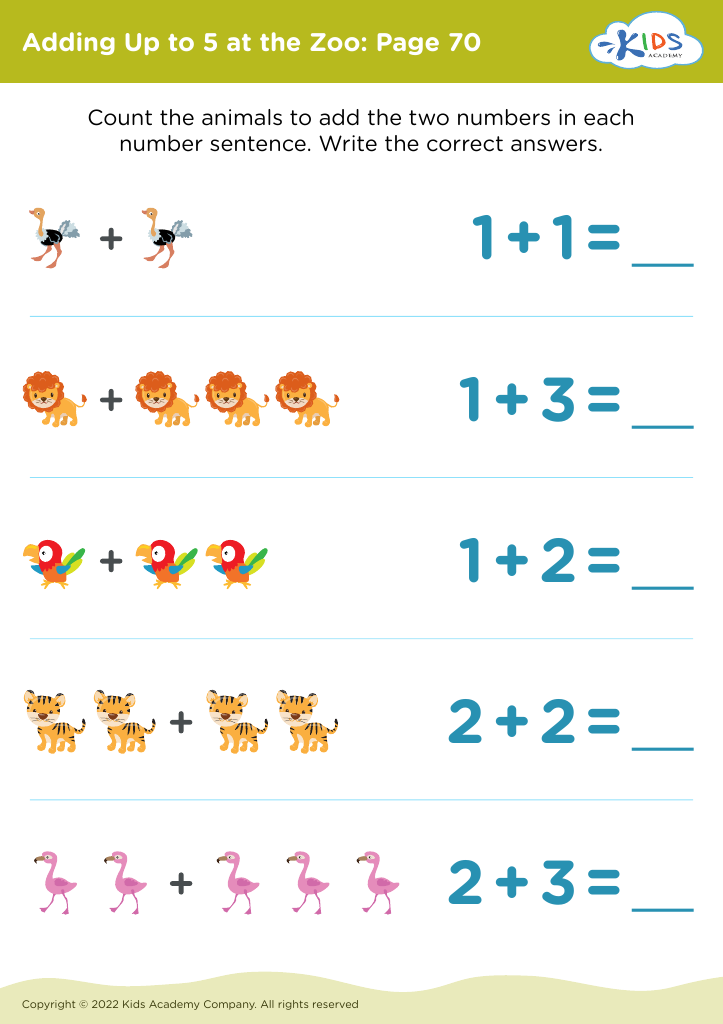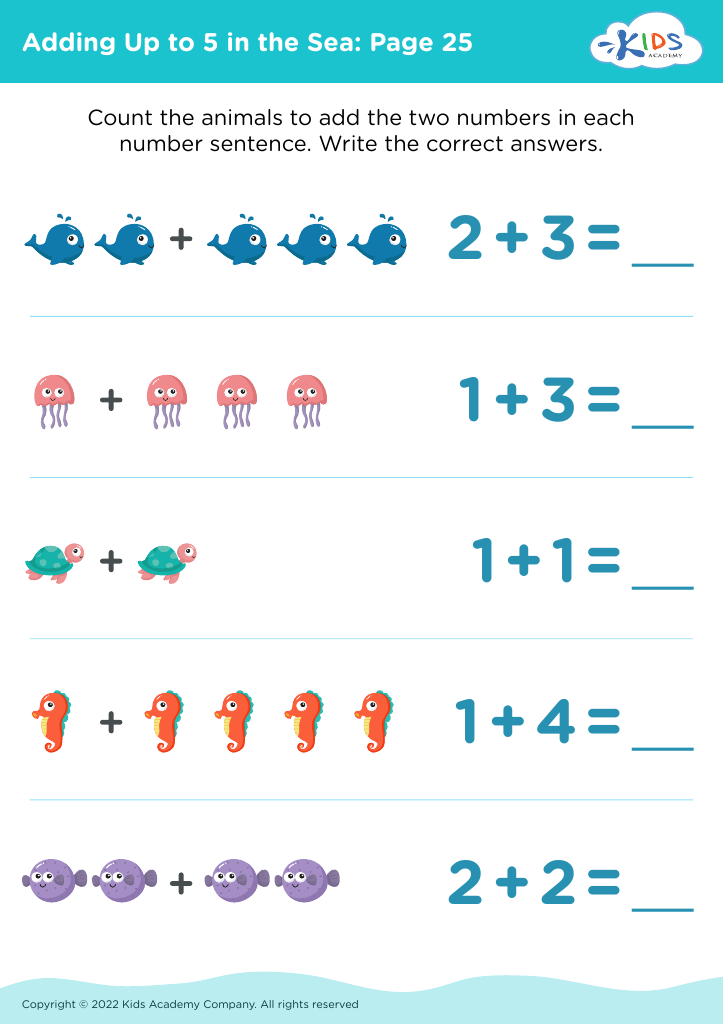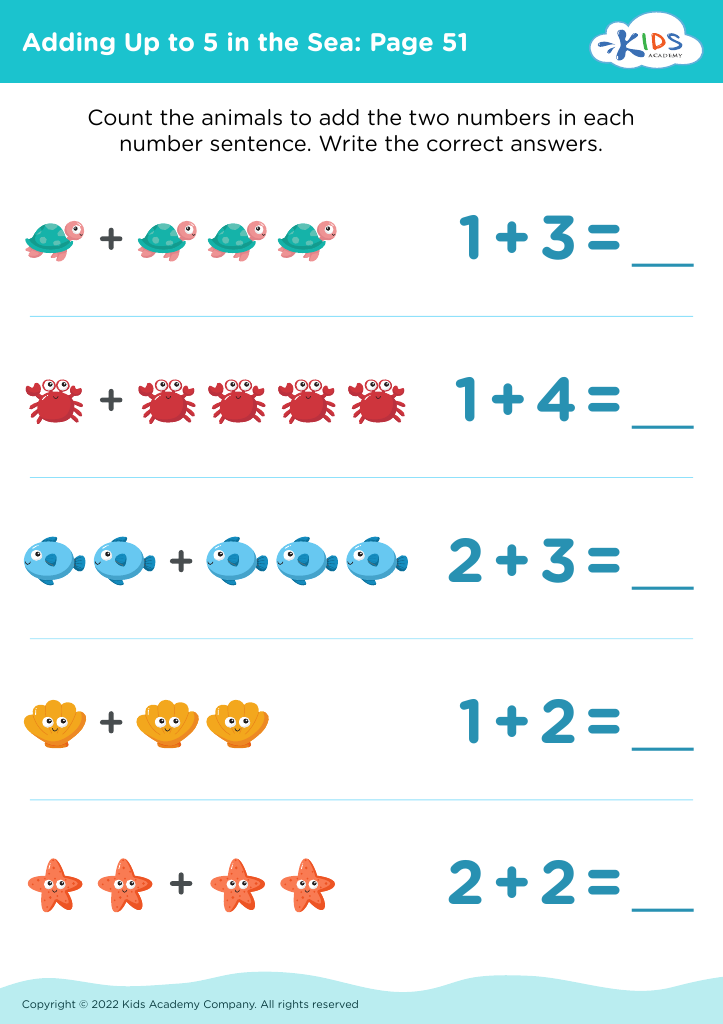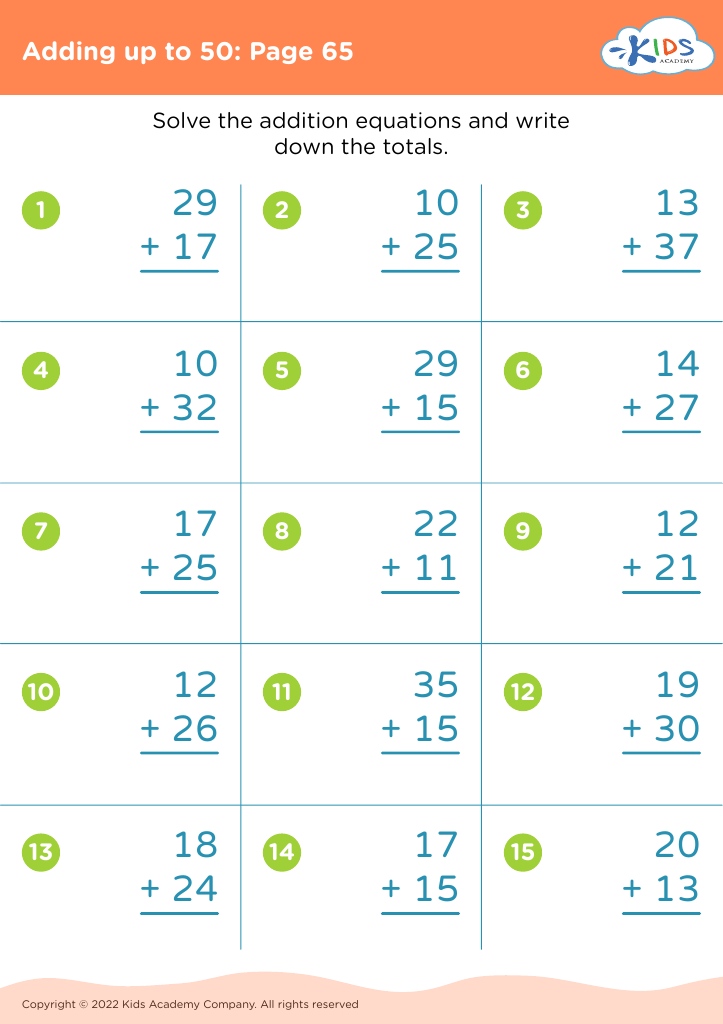Understanding number relationships Addition Worksheets for Ages 3-8
5 filtered results
-
From - To
Discover the joy of learning with our "Understanding Number Relationships Addition Worksheets" designed for children ages 3-8. These engaging and educational worksheets help young learners grasp fundamental addition concepts through colorful visuals and interactive exercises. Kids will develop crucial math skills by exploring number relationships in a fun and intuitive way. Perfect for both classroom and home use, these worksheets build a strong foundation for future math success. Join us at Kids Academy to nurture your child’s mathematical journey with expertly crafted content that makes learning enjoyable and effective. Start your child's path to numerical mastery today!
Understanding number relationships and addition for children aged 3-8 is crucial because it lays the foundation for future mathematical skills and cognitive development. At this formative stage, children's brains are exceptionally receptive to learning, making it the ideal time to introduce core concepts in a fun and engaging manner.
First, grasping number relationships helps kids develop a sense of order, patterns, and logic. This early number sense arms them with essential problem-solving and critical thinking skills, underpinning many everyday tasks and academic subjects beyond math. Knowing how numbers interrelate also makes learning addition smoother, as kids can make connections between different sets and subsets of numbers.
Addition, in particular, is a practical skill that children use daily—for instance, when sharing treats or combining groups of toys. Understanding addition at a young age boosts their confidence as they perform tasks autonomously and efficiently.
Parental and teacher involvement plays a critical role here. By integrating counting games, stories, and playful activities that involve addition, they make learning a joyful and meaningful experience. Active and engaged learning in a supportive environment not only enhances mathematical understanding but also fosters a love for learning, setting the stage for lifelong curiosity and success.






















